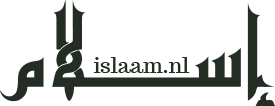Islaam.nl Forum
The best of enemies |
Post Reply 
|
| Schrijver | ||||||||||||||||
Amier 
Senior Member 
Lid geworden: 31 juli 2003 Locatie: Nederland Online status: Offline Berichten: 1902 |
 Plaatsingsopties Plaatsingsopties
 Quote Quote  Reageer Reageer
 Onderwerp: The best of enemies Onderwerp: The best of enemiesGeplaatst op: 25 april 2006 om 05:21 |
|||||||||||||||
|
Assalamu alaikum, dit artikel las ik vandaag op de site van Al Jazeera. Weer een complot-theorie? Of eet Iran van twee walletjes... http://english.aljazeera.net/NR/exeres/F0117626-ABBA-42E3-8E 4D-0B62356431D8.htm A cosy sort of enmity
Monday 24 April 2006, 16:39 Makka Time, 13:39 GMT
The relationship between the
When the Shah was overthrown by Ayatollah al-Khomeini in February 1979, he started to use anti-US slogans in speeches. The Iranian press used the term "the grand devil" to describe the Seven months later the anti- In 1986, Iran-Contra - the biggest US scandal in the 1980s involving secret arms supplies to Iran through Israel, with profits going illegally to Contra rebels fighting to overthrow the democratically elected government in Nicaragua - left many people surprised at Islamic Iran's dealings with
The Shah of Iran, Reza Pahlavi, "They had to show they were not satisfied with the Shah's foreign relation network, in which the "The back-door diplomacy started when al-Khomeini came to power, but in order to confirm the revolution's success the new regime had to show hostility to everything the Shah stood by." Liberating "The reason they talk a lot about Palestine is just to win the hearts and minds of Arabs and Muslims, otherwise why didn't the Islamic republic say a word about the Muslim Chechens killed by the Russians? And we heard no condemnation about the Muslims who were killed in their thousands at the hands of Serbs," Bakeer says. Between 1990 and 2003 the US supported and supervised the implementation of sanctions against Iraq, the main deterrent regional force able to counter Iran and the most experienced country in dealing with Iranian forces due to its war with Iran from 1980 to 1988. The sanctions included a ban on importing and exporting arms and military technology. It was obvious during the 13 years of sanctions that the balance of power in the region was shifting to Liqa Makki, an Iraqi political analyst, says: "The US and " He also makes an extraordinary claim, albeit one that is frequently echoed in the Arab world. "The friendship between the Iranian Shia Islamic government and US Republicans dates back decades," he says. "When the "The hostages were released on 20 January 1980 just after Reagan won the elections." Post-Saddam When the government of Saddam Hussein was overthrown in the 2003 US-led invasion, America did not mind Iran's key role - via its huge influence with or control of Shia parties in Iraq - in drawing Iraq's new political map. This aroused suspicions about the real nature of relations between the US and Iran. Iraqi politicians backed by Iran - such as Ibrahim al-Jaafari, the erstwhile interim prime minister, Jalal Talabani, the president, Abd al-Aziz al-Hakim, the leader of the Iraqi United Alliance list, the biggest bloc in the parliament - and many others have dominated the scene in
Iranian-backed figures dominate Makki says: "The recent nomination of
"The
"What is the difference between the two? Nothing. What is the common factor? Their close ties with The duel between the
Moreover, the intended US-Iran talks over Legitimising the occupation "What we know is "We wonder what they will talk about, and we really would like to know in what capacity the Iranians will sit with the Americans to talk about Keeping up appearances Ayatollah Mohammad Taghi Mesbah-Yazdi, a powerful cleric seen as the ideological and spiritual godfather of Mahmoud Ahmadinejad, the Iranian president, believes that there is an international conspiracy against the country's government. Hojatoleslam Mohsen Gharavian, another leading cleric, says: "The most important challenges for the regime are the policies of the "We believe the
|
||||||||||||||||
|
� Waarlijk, in het gedenken van God vinden de harten rust. � (Koran 13:28)
|
||||||||||||||||
 |
||||||||||||||||
Insha'Allah 
Newbie 
Lid geworden: 25 april 2006 Locatie: Nederland Online status: Offline Berichten: 17 |
 Plaatsingsopties Plaatsingsopties
 Quote Quote  Reageer Reageer
 Geplaatst op: 25 april 2006 om 07:27 Geplaatst op: 25 april 2006 om 07:27 |
|||||||||||||||
Wat een heerlijke voer voor onnuttige discussies over complottheori�n. Misschien interessant en daar vermakelijk, maar niet erg verbazingwekkend. |
||||||||||||||||
 |
||||||||||||||||
Post Reply 
|
| Spring naar forum | Forum rechten  Je kunt geen nieuwe onderwerpen plaatsen Je kunt geen antwoorden plaatsen Je kunt geen berichten verwijderen Je kunt geen berichten bewerken Je kunt geen enquêtes creëren Je kunt geen stemmen in enquêtes |
Deze pagina is gemaakt in 0.109 seconden.









 Printbare versie
Printbare versie Delicious
Delicious Digg
Digg Facebook
Facebook Furl
Furl Google Boomarks
Google Boomarks Google Buzz
Google Buzz MySpace
MySpace Newsvine
Newsvine reddit
reddit StumbleUpon
StumbleUpon Twitter
Twitter Windows Live
Windows Live Yahoo Bookmarks
Yahoo Bookmarks Opties
Opties


